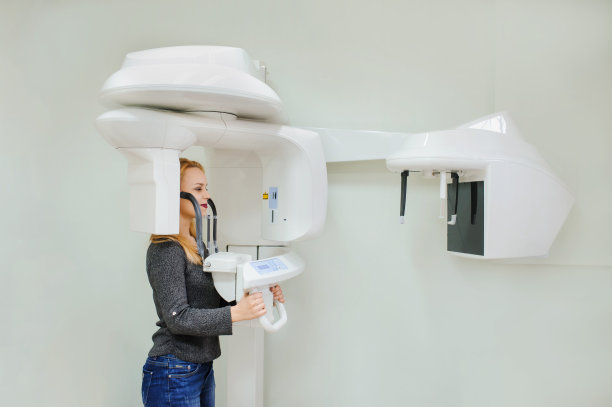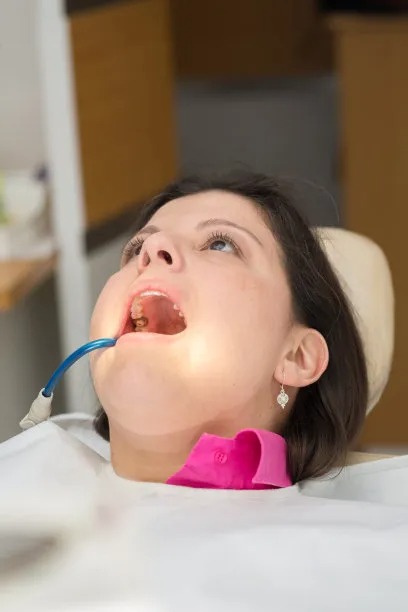Summary: Dental filling treatments are crucial for restoring the health and functionality of damaged teeth. However, optimal oral health outcomes depend on essential precautions taken both before and after the procedure. This article highlights four critical aspects: understanding the procedure, preparing for the appointment, post-treatment care, and regular dental check-ups. By following these precautions, patients can ensure a smooth recovery and maintain long-term oral health. Knowledge about the dental filling process and caring for fillings are vital for achieving the best results. By adhering to expert advice, individuals can maximize the benefits of dental fillings while minimizing potential complications.
1. Understanding the Filling Procedure

Before undergoing dental filling treatment, it鈥檚 essential to understand what the procedure entails. This knowledge helps to reduce anxiety and allows patients to ask pertinent questions. Filling treatments often involve removing decayed or damaged areas of the tooth and then filling it with a suitable material. Common materials include composite resins, amalgam, and gold.
Understanding the benefits and limitations of each filling material is vital. For example, composite fillings are aesthetically pleasing and can closely match the tooths natural color, while amalgam fillings are known for their strength and durability. Discussing these options with your dentist will help you make an informed choice that aligns with your health needs and lifestyle.
Additionally, it鈥檚 important to know the potential risks associated with the procedure, such as sensitivity or discomfort immediately after treatment. This understanding prepares patients mentally and helps to set realistic expectations for post-treatment experiences.
2. Preparing for the Dental Appointment
Preparation for a dental filling is crucial for ensuring a smooth experience. One of the first steps is to be honest about your medical history during your visit. Inform your dentist about any medications you are taking or existing health conditions. This information helps in avoiding complications during the procedure.
Another significant preparation step involves organizing transportation. Depending on the extent of the filling and the type of anesthesia used, patients may feel groggy afterward. Arranging for someone to drive you home can provide added comfort and safety.
Furthermore, consider discussing your concerns or queries with the dentist about what to expect during the treatment. Most dentists will offer a pre-treatment consultation where you can clarify doubts, learn about aftercare, and understand how to care for your fillings, making the entire process less stressful.
3. Post-Treatment Care Recommendations
After receiving a dental filling, proper post-treatment care is essential for ensuring the longevity of the filling and maintaining optimal oral health. Initially, it鈥檚 best to avoid consuming hard, sticky, or hot foods for a few hours after the procedure, allowing the local anesthesia to wear off completely. This will help prevent unintentional injury or damage to the treated area.
Maintaining good oral hygiene is critical in the days following a filling. Gently brushing and flossing around the filled area will promote healing and prevent additional decay. However, be cautious around the filling site to avoid discomfort.
Watch for signs of complications, such as prolonged sensitivity or pain in the filled tooth. If you experience any unusual symptoms, contact your dentist promptly for a follow-up. This proactive approach can help address any issues before they escalate and ensure the longevity of the filling.
4. Importance of Regular Dental Check-Ups
Regular dental check-ups are vital for maintaining oral health, especially after receiving a filling. Scheduling routine visits allows your dentist to monitor the integrity of the filling and check for any signs of decay surrounding it. Early detection is key to preventing more severe issues that could arise.
These dental visits also enable professional cleanings that remove plaque and tartar buildup, which can otherwise compromise the health of both the filled tooth and adjacent ones. Your dentist may suggest tailored oral health strategies based on your specific conditions.
In addition, engaging in preventive care with your dentist fosters a trusting relationship. Open communication about your oral habits and any concerns will help you stay more informed about your dental health and the importance of care routines moving forward.
Summary:
In conclusion, understanding, preparing, and caring for dental fillings are essential steps that contribute to achieving optimal oral health outcomes. Knowledge about the filling procedure and the importance of aftercare can significantly impact the durability of fillings and the overall oral health of individuals. Regular dental check-ups further ensure ongoing maintenance and early intervention for any potential issues.
This article is compiled by Vickong Dental and the content is for reference only.
Vickong Dental
Vickong Dental is a large medical group established in Hong Kong in 2008 by professors from well-known medical universities in Guangdong and Hong Kong, as well as medical doctors from key national '985' universities (including Master's supervisors and senior professors). The chain of branches brings together expert dentists with PhDs and Master's degrees from Hong Kong and Mainland China, committed to providing high-quality dental treatment.
"Vickong Dental Practices the University Motto of 'Healing and Serving Society,' with a Stable Operation for Sixteen Years. It Has Been honored with Hong Kong Enterprise Leaders's Choice,' and is a Global Trusted Implant Center for the Nobel Implant System. Recommended by Hong Kong Metro Broadcast and Guangdong Television, it Serves Customers from Over Thirty Countries and Regions, Gaining the Trust and Favor of Citizens from the Guangdong-Hong Kong-Macau Greater Bay Area and Surrounding Cities.

Thousands of customers' unanimous praise
The most recognized and highly recommended dental service by customers in the Guangdong-Hong Kong-Macau Greater Bay Area
We Ensure You Receive Detailed Care and Attention Here
Hong Kong standards, Shenzhen prices, Your Trusted English-speaking dentists

Vickong Dental Medical-Grade Instrument Disinfection Process
Vickong Dental Medical-Grade Instrument Disinfection Process

Vickong Dental Chain: A Warm and Comfortable Environment for Treatment






Appointment Hours

Q&A
Why choose Vickong Dental?
Vickong Dental practices the university motto 「Medicine to Benefit Society」, with each branch bringing together highly qualified dentists with doctoral and master’s degrees from Hong Kong and the Mainland, and has maintained seventeen years of steady operation。Recipient of 「2024 Hong Kong Enterprise Leaders Brand」, 「2025 Hong Kong Enterprise Leaders Brand」, a Nobel Biocare Global Trusted Implant Center, and a brand recommended by Metro Radio Hong Kong and Guangdong TV。
To date, we have served customers from more than thirty countries and regions,earning exceptionally high word-of-mouth recognition and trusted recommendations from residents across the Guangdong-Hong Kong-Macao Greater Bay Area and surrounding cities
We have eight major branches in Zhuhai、Shenzhen,and a consultation and service assurance center in Hong Kong,so you can book a free consultation at any time for any questions,which is very reassuring.
If I do not accept the quotation after the CT scan, will I be charged??
No! As long as the actual treatment has not started, you will not be charged any fees.
Will there be any additional charges during the treatment process?
No, there won’t be any additional charges. Before treatment begins, we will clearly explain the treatment plan and its corresponding fees. Only after the patient agrees and signs the consent form will we proceed with the dental service.
Can I pay in Hong Kong dollars?
Yes. Vickong Dental accepts payment in Hong Kong dollars. The amount will be converted based on the exchange rate of the day, and the applicable rate will be clearly communicated to you in advance.
Can I reschedule my appointment at any time?
Yes. Please contact us via **WeChat** or **WhatsApp** as early as possible, providing your original appointment time and details, along with your preferred new date and time slot for rescheduling.













